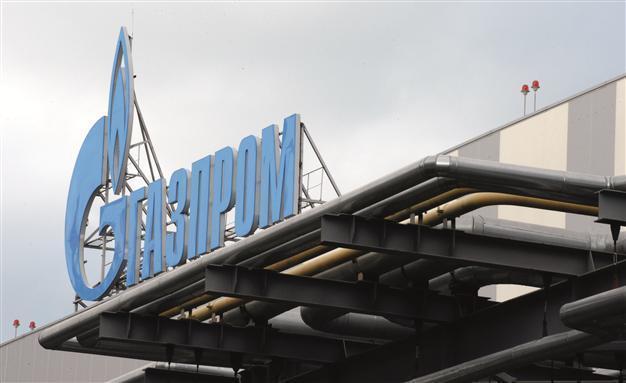Gazprom signals fall in gas prices in sales to Turkey
ISTANBUL - Reuters

The Turkish government had previously announced that it will raise both electricity and gas prices by 9 percent this year. AFP Photo
Russia’s Gazprom is now working on a detailed price package in line with Turkey’s demand for a discount on natural gas prices, said Gazprom Vice President Alexander Medvedev at the fourth International Gas Forum.
“We are evaluating our price negotiations under two headings. In the first column, we are working on setting a price for Turkish gas importers for this year and next year, and in the second, we are working on setting a gas price for Turkey’s state-run gas pipeline company, BOTAŞ, for 2015. We are preparing detailed resolution packages for both of them,” he told EnergyIQ, a Turkish-based energy publication and reporting group.
Medvedev did not give any details about these packages. “Gazprom Export CEO Elena Burmistrova will visit Turkey this autumn. She will meet Turkish energy ministry and BOTAŞ representatives, and private sector players, and present our offers to them. After these meetings, we will reach a clearer point, I believe.”
Turkey depends on imports for almost all of its energy needs, and Russia is its biggest gas supplier.
Price raise is good for Turkish market Turkish Energy Minister Taner Yıldız asked for a discount on the price of gas Turkey buys from Russia during talks with Medvedev last week. Meanwhile, the Turkish government said it will raise both electricity and gas prices by 9 percent this year.
“The latest 9 percent raise in gas prices is a positive move for the Turkish market, I believe. The Turkish state is regulating gas prices, and the regulated prices are very low when we have a look at how much Turkey pays to import gas from Iran and other countries. This shows that free market dynamics are not working properly. With a raise in prices, BOTAŞ, the Turkish Energy Ministry and the private sector may reach a reasonable price basis. In this vein, I found the latest 9 percent raise a positive move and Turkey should continue to make such moves,” Medvedev said.
Turkey’s $60 billion annual energy bill is the major driver of its currently ballooning current account deficit, the main vulnerability of its economy.
To meet rising demand in Turkey, Ankara also wants to increase the capacity of the Blue Stream pipeline, which carries Russian gas to Turkey under the Black Sea, by around 3.5 billion cubic meters annually.
